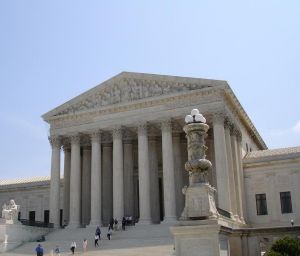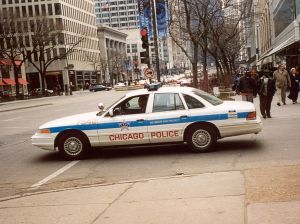You have the right to remain silent. Anything you say can and will be used against you in a court of law. You have the right to an attorney. If you cannot afford an attorney, one will be appointed to you.
Thanks to the proliferation of television crime shows, you likely know what the above quotation is – the Miranda warnings, which every Chicago police officer is required to read prior to the arrest and interrogation of every criminal defendant. These rights are named after Miranda v. Arizona, the United States Supreme Court case that created the warnings, and failure to read a Chicago criminal defendant those rights, or questioning him after he has invoked his right to silence or requested a criminal defense attorney, may result in his statements being held inadmissible in a Chicago criminal court.
What you may not know is that there are circumstances where the Chicago police can question you without first reading the Miranda warnings. There are also circumstances where the police may question you even though they have read the rights. Statements you make in either of these situations may be admissible in court.
Illinois Police and Miranda Warnings Require Custody
Chicago police are required to read a criminal suspect the Miranda warnings when he is in custody. “In custody” means when the suspect is deprived of his freedom of movement in any significant way, or when the police officer’s actions indicate that the suspect is not free to leave.
How does this work in the real world?
Obviously, if you are placed in handcuffs on the street corner, or brought into a police interrogation room, you are in police custody and should be given the Miranda warnings.
But imagine you are walking down the street and a police officer stops you. He asks what you were doing standing on a deserted street corner, alone, for 10 minutes. You say you were waiting for a friend who never showed up. The officer thanks you for your time and tells you to have a nice day.
No problem there. No arrest was made, you made no statement to the officer, and you were free to walk away. Now what if, when the officer asks what you were doing, you panic and tell him that you were there to meet your dealer, who was going to give you drugs to sell for the week. These statements would be entirely admissible in court, even though you did not receive the Miranda warnings. There was no custodial situation, and no interrogation. The police officer simply asked you a question, and you unfortunately gave him a very guilty answer.
Now imagine that after the officer tells you to have a nice day, he asks if you have noticed any suspicious activity in the area. Have you seen any drug deals? Were you there trying to buy or sell drugs? Depending on the officer’s demeanor during these questions – whether he had his hand placed on a weapon or was in another threatening pose, how close he was to you, or whether his questions seemed accusatory – this could become a custodial situation. But chances are, without anything more, the court would not consider this a custodial situation, and any statements made to the officer would be admissible.
Now let’s say after you turn to walk away, the officer asks that you come sit in his squad car so he can ask you some questions. You politely decline, indicating that you have other things to do. The officer, however, insists. At this point, most people would no longer feel free to leave. This would be a custodial situation, even though no arrest has been made, and the police officer would be required to read you the Miranda warnings.
In any custodial situation, the police must read you your Miranda warnings. They are not required to read you these rights any time they approach you. The Miranda warnings are only required where your freedom of movement has been restricted to the point that a reasonable person would no longer feel free to leave. Any violation of the Miranda ruling will cause any statements made to the police to be kicked out of court.
Chicago Criminal Suspect Must Affirmatively Invoke Miranda Rights
Even if the police follow proper procedure and read you the Miranda warnings, they are still free to question you, unless you affirmatively invoke those rights.
What does that mean? It means that you must say, “I wish to remain silent”. Sitting there in silence – while something every arrestee should do – does not invoke the right to remain silent.
Failure to affirmatively invoke the right to remain silent means the police will continue to question you, hoping to wear you down and get you to confess. Once you say, “I wish to remain silent,” the police must stop all questioning. Invoking this right is so strong, the police may not even come back a few hours later and ask if you have changed your mind. Continue reading
 Broadly speaking, the law in Chicago gives the police power to search and seize items if and when they suspect that those items are relevant to the commission or investigation of a crime. However, some law enforcement agencies have abused this power resulting in the interventions of senior courts to determine what constitutes a legal search and seizure in Chicago. Defense attorneys may find themselves in a position where they are effectively prosecuting the law enforcement agencies for breaking the law. Typically, these complexities arise in the midst drug-related cases.
Broadly speaking, the law in Chicago gives the police power to search and seize items if and when they suspect that those items are relevant to the commission or investigation of a crime. However, some law enforcement agencies have abused this power resulting in the interventions of senior courts to determine what constitutes a legal search and seizure in Chicago. Defense attorneys may find themselves in a position where they are effectively prosecuting the law enforcement agencies for breaking the law. Typically, these complexities arise in the midst drug-related cases. Chicago Criminal Lawyer Blog
Chicago Criminal Lawyer Blog







